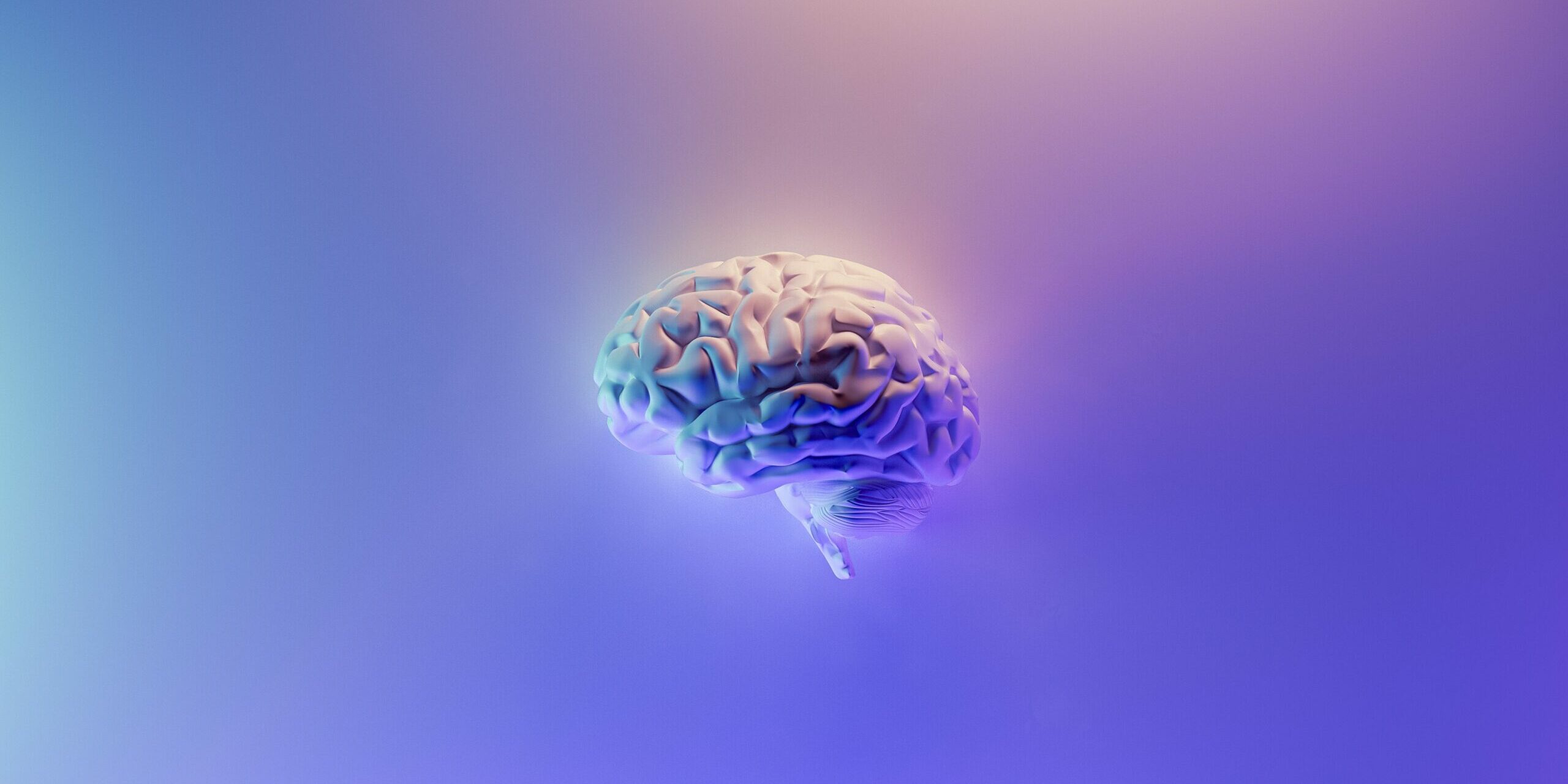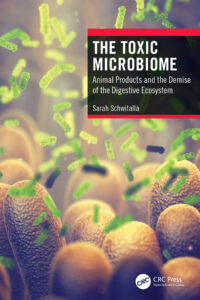Protecting your brain from Alzheimer’s might just be as simple as nourishing your gut with the right foods.
Recent scientific discoveries have unveiled a remarkable link between the foods we consume and cognitive health.
In this article, I will cover
- how the gut microbiome and alzheimer’s are linked
- 3 powerful, evidence based foods that can significantly lower your risk of Alzheimer’s
Gut Brain Axis: How the gut microbiome is linked to Alzheimer’s
During the last 5 years research has uncovered how neuroinflammation in the brain — a precursor to cognitive decline – can be provoked by gut inflammation, microbiome-derived molecules and certain foods.
I dove into the link between how our diet and foods can change the microbiome and get it to produce toxic, carcinogenic molecules that are shown to be a major contributor to chronic disease and cancer in my books.
I find particularly fascinating the link between gut and brain health, therefore I am currently writing on a new book about the gut brain axis!
Stay tuned and follow my writings about evidence based nutrition for a healthy gut microbiome, prevention of cancer and disease, healing & longevity to never miss an update!
Gut Microbiome-Derived Molecules are found in the brains of Alzheimer’s patients
- Endotoxins: highly pro-inflammatory components found in bacteria like E. coli can penetrate the gut wall and circulate in the bloodstream. Notably, autopsies of Alzheimer’s patients revealed a higher presence of endotoxins in their brains. Intriguingly, these endotoxins are most prevalent in foods like meat, potentially explaining why those on plant-based diets have up to three times lower dementia risk.
- Toxic TMAO: Another noteworthy molecule is trimethylamine N-oxide (TMAO), produced by the liver and gut microbiome from dietary sources like eggs, meat, and dairy. TMAO was found in the cerebrospinal fluid of Alzheimer’s patients.
- Molecule cocktail: A study by Xu et al. analyzed 20 gut microbial metabolites significantly associated with cognitive decline in Alzheimer’s patients
The encouraging news is that we can influence our gut microbiome by making informed dietary choices. By consuming antioxidant-rich foods, we can boost a healthy microbiome and potentially prevent Alzheimer’s.
Three Powerful Foods for Gut Health, increased cognitive performance and lower Alzheimer’s risk
Certain foods can stimulate the gut microbiome to produce substances that are toxic to the brain, increasing the risk of Alzheimer’s and cognitive impairment. On the flip side, antioxidant-rich foods support a diverse gut microbiome and improve brain health:
- Berries: A Cognitive ElixirThe MIND diet study found that a higher consumption of flavonoid-rich foods, particularly berries and dark leafy greens, can lead to a remarkable up to 50% reduction in amyloid plaques—the hallmark of Alzheimer’s—in the brains of afflicted individuals. Astonishingly, this effect remains unaffected by other lifestyle factors, underscoring the potency of these antioxidant-rich fruits.
- Dark Leafy Greens: The Brain’s Green PowerhousesFollowing the same trail as berries, dark leafy greens such as spinach, kale, and collard greens have also demonstrated their ability to promote brain health. Packed with antioxidants and essential nutrients, these greens nurture a diverse gut microbiome while bolstering your cognitive resilience.
- Soy Foods: Equol’s Cognitive BoostSoy foods, rich in isoflavones, undergo a transformation in the gut, courtesy of beneficial bacteria, resulting in the production of equol—a potent substance. Research conducted on elderly Japanese individuals reveals that equol producers exhibit significantly higher cognitive scores and a lower prevalence of cognitive impairment. To become a high equol producer though, regular consumption of soy foods is essential – unless you are allergic
More colorful plants + less meat = higher cognitive performance and lower Alzheimer’s risk
Take action to support your brain:
- less meat 2. more berries greens and if you are not allergic: soy
The scientific evidence supporting the gut-brain connection and the role of diet in cognitive health is compelling.
For your maximum health, stay tuned and follow my writings about evidence based best diet for a healthy gut microbiome, prevention of cancer and disease, healing & longevity to never miss an update!
Wenn du bereit bist, kann ich so weiterhelfen:
Darm Retreat: Heilen mit Ernährung
5h online Workshop Kurs – lerne wissenschaftlich basiert eine Strategie für die ideale Ernährung zur Optimierung der Darmgesundheit und der Immunfunktion, die auch im Alltag funktioniert. Erstelle unkompliziert einen 100% nährstoffdeckenden, antientzündlichen Ernährungsplan für Heilung und Prävention. Ausgewogen ernähren auch bei eingeschränkter Verträglichkeit von Lebensmitteln.
Als Speaker oder Berater buchen
Möchten Sie mich als Speaker für Ihr Event, Berater für ein Projekt, Scientific Advisor, Researcher oder Autor engagieren? Als PhD und ehemalige Wissenschaftlerin u.a. an der Harvard Universität und University of Cambridge, Autorin von 3 Büchern und zahlreichen Fachartikeln, Scientific Advisor für Firmen, Filmteams und Organisationen, Speaker auf Kongressen und Events bringe ich Expertise seit 2008 mit. Hier anfragen.
Discover the most exciting studies and actionable science on Microbiome, Gut-Brain and Nutrition research for healing, wellbeing and longevity
Join +4000 Readers of The Longevity Microbiome Journal.
Fridays in your inbox.
More Links
All the best


Dr. Sarah Schwitalla
PhD in molekularer Medizin und Biochemie 10 Jahre biomedizinische Krebs-Forschung und Pharmaindustrie Erfahrung TU München, Harvard Medical School, University of Cambridge.
Referenzen
Del Rio D, Zimetti F, Caffarra P, Tassotti M, Bernini F, Brighenti F, et al. The gut microbial metabolite trimethylamine-N-oxide is present in human cerebrospinal fluid. Nutrients. 2017;9:1-7. https://doi.org/10.3390/nu9101053
Sekikawa A, Higashiyama A, Lopresti BJ, et al. Associations of equol‐producing status with white matter lesion and amyloid‐β deposition in cognitively normal elderly Japanese. Alzheimer’s Dement Transl Res Clin Interv. 2020;6(1). doi:10.1002/TRC2.12089
Igase et al 2017 9 Igase M, Igase K, Tabara Y, Ohyagi Y, Kohara K. Cross-sectional study of equol producer status and cognitive impairment in older adults. Geriatr Gerontol Int. 2017; 17(11): 2103- 2108.
Agarwal P, et al. Association of Mediterranean-DASH intervention for neurodegenerative delay and Mediterranean diets with Alzheimer disease pathology. Neurology. 2023. Epub March 8. doi: 10.1212/wnl.0000000000207176.





